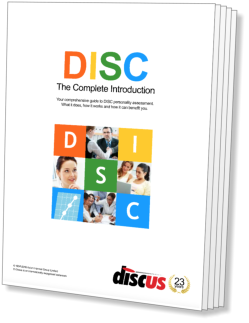High Dominance Only

The High-D profile is often described as the 'Autocrat', and for good reason. Dominance is the factor of control and assertiveness, and with no other high factors in the profile to balance this, the pure High-D can be remarkably domineering, and even overbearing at times. This type of person has a very high need to achieve, and because of this they are often ambitious and competitive, striving aggressively to achieve their goals. They are dynamic and adaptable, and show a decisiveness and a capacity for direct leadership.
Relating to Others
The emphasis that this type of person places on achievement and success significantly affects their relations with other people. In extreme cases, a High-D can come to treat other people simply as a means to an end, or a way of achieving their personal goals. Dominance is not an emotional factor, and individuals with this type of profile will tend not to place great importance on feelings, either their own or others'. The competitive side of Dominance can lead this type of person to see challenges and opposition everywhere, and others sometimes find it difficult to break through this naturally suspicious, sceptical shell.
Common Abilities
We have already seen that the Dominant individual has qualities of command and leadership. It should be noted, however, that these abilities are based on their direct, demanding nature, and are more suited to structured, formal situations than those where close ties are required.
The High-D is a competent and confident decision-maker, able to reach a conclusion quickly from minimal information and act accordingly. They are well suited to situations that others would find unbearably stressful, as their desire for challenge and their enjoyment of success against the odds makes them unusually proficient in dealing with such situations.
Motivating Factors
Highly Dominant individuals of this kind like to feel that they are in control, and seek opportunities to reinforce and emphasise their personal power. They measure their progress in life by their achievements and successes, and need to maintain a sense of personal momentum.
Being impatient and forthright, they intensely dislike situations that they are unable to directly resolve for themselves - dependence on other people is anathema to this type. They find these kinds of situation extremely frustrating, and can be driven to wild, impulsive actions in an attempt to relieve the pressure.
Sub-traits
The Sub-traits of a highly Dominant type are Efficiency, Self-motivation and Independence.
Style Card
High-D's are Assertive and Controlled. They relate directly to the Style Card segment of the Driver.

